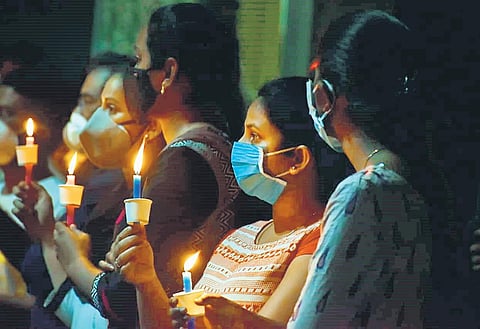

The world is greying fast. At present, around 10% of the world is aged 65 years and above, as per data from the World Health Organization (WHO). A report commissioned by the National Institute of Aging (NIA) and produced by the US Census Bureau projects the proportion of the elderly in the global population to double by 2050. This, coupled with a worldwide increase in life expectancy after birth, is projected to increase the number of the “oldest old”, i.e. people who are 80 years and above. In certain Asian and Latin American countries, these numbers are even expected to quadruple by 2050.
India is one of the rapidly ageing countries contributing to these global statistics. As per Census 2011, there were nearly 104 million older adults (aged 60 years and above). This number has been steadily increasing due to factors like increased birth rates, decreased death rates, enhanced life expectancy improved healthcare delivery and access and better control of infections, etc.
A recent report released by the United Nations Population Fund (UNPF) and HelpAge India suggests that the number of older adults might grow to 173 million by 2026. But life above 60 years runs the risk of being fraught with frailty, illness, mobility restrictions, social stigma, neglect and abuse. Hence, keeping in mind the increasing numbers of elderly people, holistic and systematic care for our seniors is the need of the hour.
‘Age-old’ challenges: Age is a continuum affecting all of us. It does not necessarily make a person weak; however, it increases dependency and the need for care. As a law of nature, problems with vision, hearing, memory, mobility, comprehension, socialisation and social inclusion are frequent accompaniments of age. On the other hand, experience, wisdom, hope and resilience are abundant, inculcated and nurtured over the years. Taking care of the seniors not only involves their healthcare but also the psychological, emotional and social needs. Older adults staying alone, segregated from their families or in institutions (care homes) frequently suffer from loneliness, depression, anxiety and physical pain, which can worsen conditions like diabetes, hypertension, cardiac illness, blood cholesterol, etc.
Added to this is the widely prevalent stigma of ageism that arises from our very own fear of ageing, being fragile and finally dying. Both covert and overt ageism lead to discrimination and prejudice based on age and are harmful for the social justice and inclusion of the elderly. This further promotes elder abuse and neglect, which can happen in multiple forms (physical, emotional, financial, sexual, human rights violation, or a mix of all).
The WHO defines ‘elder abuse’ as a single or repeated act, or lack of appropriate action, occurring within any relationship where there is an expectation of trust, causing harm or distress to an older person. In most cases, the perpetrator is someone known to the victim and the incidences of such abuse are grossly under-reported, further promoting the vicious cycle. Many times, the abuse is unintentional and arises out of miscommunication and misinterpretation. Abuse, ageism, prejudice and neglect of the elderly can together increase dependence, reduce functional abilities, worsen psychological status, promote malnutrition and enhance premature morbidity and mortality.
The older adults are in general at a greater risk of disorders like dementia, depression and anxiety besides other chronic health problems, all of which can be worsened by such emotional stressors. Promoting ‘healthy ageing’ for our seniors: The world is approaching the care of its elderly through the principles of healthy ageing. Population ageing affects multiple aspects of public life: Acute and long-term healthcare needs, pensions and retirement plans, activity engagement in old age, transportation, housing, financial benefits, etc. The onus of the care of a nation’s elderly is a collective responsibility that involves all levels of stakeholders from the individual to the policymakers.
The ongoing pandemic in that sense has been an eye-opener on the unique age-based vulnerabilities faced by the older adults, besides the increased risk of being affected by the virus. Research and policies targeting healthy ageing need to be informed by life expectancy, gender balance, health, disability, existing healthcare systems, barriers for healthcare access by older adults, and most importantly, gerodiversity, which is a socio-culturally sensitive approach towards the issues of ageing and encompasses a ‘social justice’ framework. It incorporates the contexts of cultural identity and heritage, social environment, community, family system and interpersonal relationships to preserve the social dignity of older adults, thereby promoting privilege and equality.
The understanding and practice of gerodiversity needs to start from our individual families and then build up to the collective community level. We all cherish the lovely moments with our parents and grandparents. When times change, their hands will also look up to ours for the same care, affection and empathy. In today’s world of human rights approach and justice irrespective of differences, healthy ageing can only be promoted by appreciating and addressing the needs and barriers of elderly healthcare.
As World Senior Citizen’s Day (August 21)—officially begun by Ronald Reagan, the former president of the US, way back in 1988—has just passed us by, let us recognise the importance of elderly well-being, appreciate their accomplishments and promote their social participation for an age-friendly community. The importance of any such day is that it serves as a reminder for the message that it emphasises. The youth of today are the “not so young” of tomorrow. In line with the apt words of Gandhiji, “The true measure of any society can be found in how it treats its most vulnerable members”, let us be sensitive, willing and unbiased to care for those hands that have tirelessly and selflessly cared for us all throughout. Only then can we strive to be designated as an evolved and civilised society.
DR DEBANJAN BANERJEE
Psychiatrist, NIMHANS, Bengaluru
(dr.djan88@gmail.com)